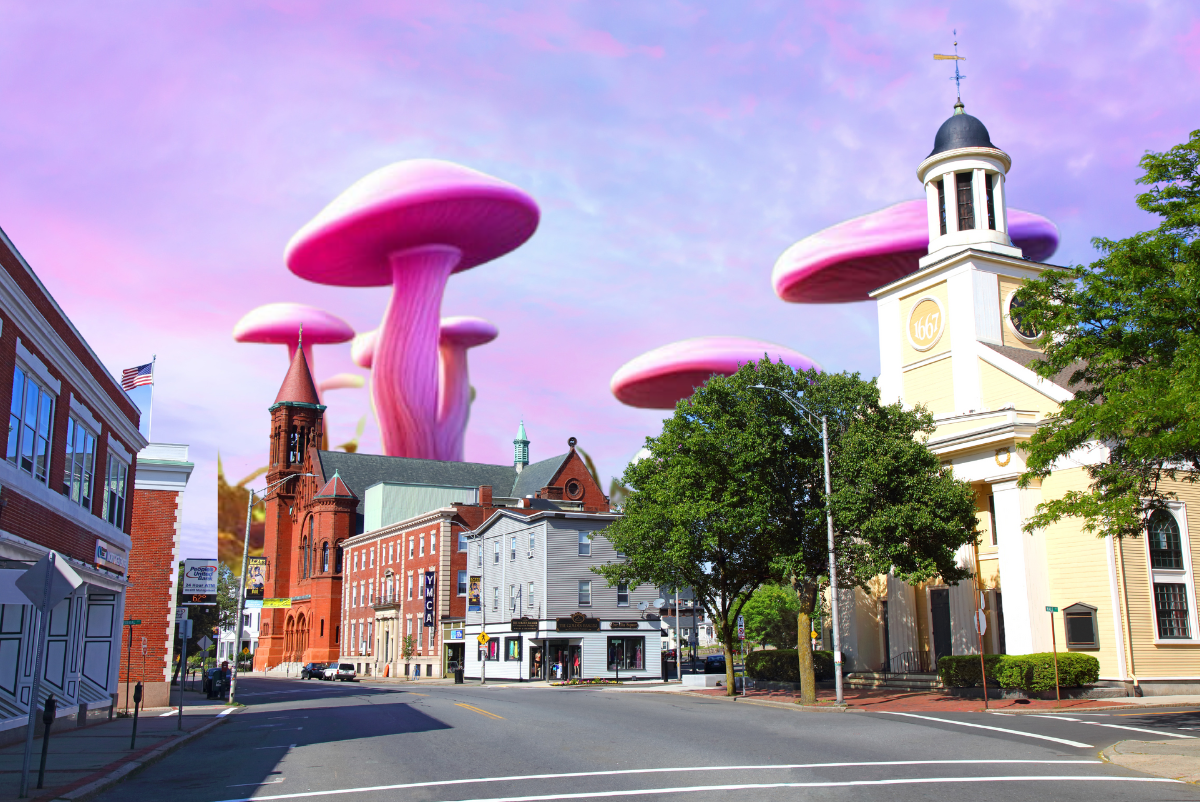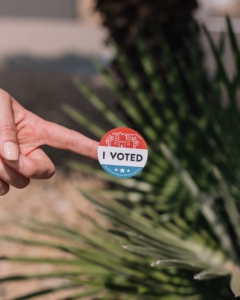
More than 60 lawmakers and their staff attended a private briefing on naturally-occurring psychedelics in early September, where they learned how psilocybin mushrooms and related plants can alleviate depression, opioid addiction, and rare neurological diseases like cluster headaches. Led primarily by psychotherapist Lieutenant Sarko Gergerian, an Officer with the Winthrop Police Department, and James Davis, the founder of Bay Staters for Natural Medicine, the presentation called on lawmakers to pass S.1009 and H.1754 An Act Relative to Plant Medicine.
This bill, supported by Democrats Senator Jehlen and Representative Sabadosa as well as Republican Representative Nick Boldyga, would allow adult residents to grow and share (without financial gain) a modest amount of psilocybin mushrooms with the goal of destigmatizing and educating people on their use for mental health.
The briefing occurred just days before two ballot measures filed by New Approaches were certified.
A Massachusetts resident married to an Iraq War veteran and a mom to four kids protested the meeting where the super PAC announced the final text of the measure, calling on New Approaches to be honest about how the rules of the ballot measure would make regulated access affordable for average people.
“This is shameful. This DC Super PAC is trying to rig our rules and the ballot system to profit off suffering in our communities,” remarked Jamie Morey, a mom of young adults who struggle with depression and the Founder of Massachusetts-based Parents for Plant Medicine.
“These measures are designed to mislead voters. They would create an unelected panel of bureaucrats with the ability to re-criminalize possession and cultivation of mushrooms to undo the protections Salem, Northampton, Easthampton, Amherst, Somerville, and Cambridge have put in place,” remarked Stephen Benjamin, a Franklin resident and U.S. Navy veteran helping lead New England Veterans for Plant Medicine. “We want lawmakers to pass an informed bill, not out-of-state money rigging our rules.”
The ballot measure rules, modeled on similar measures that narrowly passed in Oregon, would put strict regulations on use, restricting it to “healing centers” that have been expensive to operate.
“In Oregon, three years after voters approved that ballot measure, the average cost of a psilocybin facilitation session is almost $4,000. An average, or even upper-middle class family in the commonwealth is paying for school, they’re paying for their medical bills, they have transportation costs. That is ridiculous,” Davis said. Moreover, the state of Oregon was forced to give the regulatory authority overseeing the program a $6.2 million bailout from taxpayers because of a failure of the program to generate revenue for the state to even operate it.
Founder of Bay Staters for Natural Medicine James Davis outlined the main differences between the bill and the ballot measure:
Proposed Bill v. Ballot Measure
An Act Relative to Plant Medicine (H1754) / An Act Relative to the Legalization of Certain Natural Plants and Fungi (H3771)
- Both less than one page long
- Both will legalize growing and non-commercially sharing modest personal amounts of psychedelic plants and fungi by adults.
- Both would protect the ability of doctors, therapists, social workers, and addiction professionals to educate clients with harm reduction advice without the risk of being delicensed.
- Supported by over 24 Massachusetts organizations, including Bay Staters for Natural Medicine and New England Veterans for Plant Medicine.
- Attracted 60 lawmakers and their staffto a private briefing at the state house two weeks ago, where concerns about the commercialization of psychedelics via any ballot measure was discussed.
- Saw over 300 testimonies (that’s a lot) sent and given to the Judiciary Committee, where there was ahearing this summer that brought veterans, law enforcement, and mental health professionals together.
Ballot Measure
- Over 25 pages long (unlikely to be read by many voters if any).
- Funded by D.C-Based New Approaches PAC, which is funded by multi-state cannabis corporations, Miracle Grow, and undisclosed individual donors that have given in excess of $500,000.
- Did not consult with any organization in our coalition, as Dr. Mason Marks has documented.
- Law would create a board of five unelected persons to set rules for psychedelic facilitation services. In Oregon, this model led to a situation where the average cost of services is $3,500 or more, only a handful of people have gotten service three years after, state taxpayers have had to bail out the regulatory agency for $6.2 million because the program has failed to generate revenue, and business owners pay tens of thousands of dollars per month for fees and insurance. Seven in ten Oregon countiesbacklashed and banned psychedelic service centers in their jurisdictions.
- Would allow for any personal use, growing, and sharing amounts to be reduced by the legislature or the unelected board if it were to pass, explicitly allowing the board to overturn local measures passed in six communities by democratically elected city councilors.
- Would specifically ban our nonprofit and other harm reduction nonprofits from advertising that we give harm reduction advice for safe and positive experiences.





